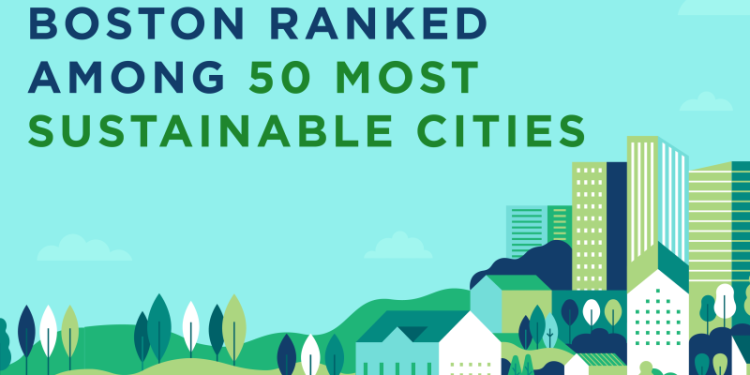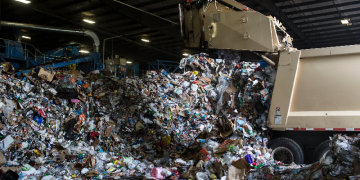Waste Management’s Impact on Economic Growth
Waste management plays a crucial role in supporting economic growth and development. Effective waste management practices contribute to various aspects of the economy, including job creation, resource conservation, cost savings, and sustainable development. In this article, we will explore the impact of waste management on economic growth and highlight the importance of implementing comprehensive waste management strategies.
One significant impact of waste management on economic growth is job creation. The waste management sector encompasses a range of activities, including waste collection, sorting, processing, recycling, and disposal. These activities require a diverse workforce, from waste collection personnel and recycling plant workers to engineers and researchers involved in waste management technologies. By investing in waste management infrastructure and programs, governments and businesses can create employment opportunities and stimulate economic activity in local communities.
Additionally, effective waste management practices contribute to resource conservation and sustainability, which are key drivers of economic growth. Proper waste management reduces the reliance on virgin materials by promoting recycling and reuse. Recycling materials such as paper, plastic, glass, and metals not only conserves natural resources but also reduces the energy and water consumption associated with extracting, refining, and manufacturing new materials. This resource efficiency translates into cost savings for businesses and contributes to the overall economic well-being of a region.
Furthermore, waste management can lead to cost savings for businesses and municipalities. Proper waste management practices, including waste reduction, recycling, and composting, can help businesses reduce waste disposal costs. By diverting waste from landfills, businesses can potentially save on landfill fees and transportation expenses. Municipalities can also benefit from reduced waste management costs when effective waste management strategies are in place. These cost savings can be reinvested in other areas, such as infrastructure development, education, or healthcare, thereby fostering economic growth.
In addition to cost savings, effective waste management practices can enhance the overall attractiveness and competitiveness of a region for businesses and investors. A well-managed waste management system demonstrates a commitment to environmental stewardship and sustainable practices, which can improve the reputation and image of a region. Businesses, especially those with strong environmental and social responsibility commitments, are more likely to be drawn to locations that prioritize effective waste management. This can lead to increased investment, job creation, and economic growth in the region.
Furthermore, waste management practices can contribute to the development of a circular economy, which is a regenerative system that aims to minimize waste generation and maximize resource efficiency. By implementing recycling programs and promoting the use of recycled materials, waste management supports the circular economy model. This model focuses on reducing waste, reusing materials, and designing products for durability and recyclability. The transition to a circular economy not only reduces environmental impact but also creates opportunities for innovation, new business models, and economic growth.
Finally, waste management practices can have indirect economic benefits through improved public health and environmental quality. Proper waste management reduces the risk of pollution, contamination, and the spread of diseases associated with uncontrolled waste disposal. Cleaner environments and better public health conditions can lead to reduced healthcare costs, increased productivity, and a higher quality of life for residents. These factors, in turn, can attract businesses, tourists, and investments, contributing to economic growth and development.
In conclusion, waste management has a significant impact on economic growth. Effective waste management practices create job opportunities, conserve resources, reduce costs, and contribute to sustainable development. By investing in waste management infrastructure, promoting recycling and resource efficiency, and adopting the principles of the circular economy, governments and businesses can stimulate economic growth while safeguarding the environment. Implementing comprehensive waste management strategies is not only an environmental imperative but also a strategic economic decision that can lead to long-term prosperity and resilience for communities and nations.
Waste Management Issues in the City of Boston
The city of Boston, like many urban centers, faces various waste management challenges. With a growing population, commercial activities, and a vibrant tourism industry, the city generates a significant amount of waste that needs to be effectively managed. Here are some of the key waste management issues faced by the city of Boston:
Limited Landfill Space: Landfill space is a major concern in Boston. The city’s landfill, located in Saugus, is rapidly approaching its capacity. This limitation necessitates alternative waste management strategies to minimize the amount of waste sent to landfills. Finding suitable landfill sites nearby is becoming increasingly difficult, which emphasizes the need for waste reduction and recycling programs.
High Waste Generation: Boston’s dense population and thriving business sector contribute to high waste generation. The city faces the challenge of managing the increasing volume of waste effectively. The residential sector, commercial establishments, restaurants, and public spaces all contribute to the waste stream. Effective waste management strategies need to be in place to handle this growing waste generation.
Recycling Contamination: Recycling contamination is a significant issue in Boston. Despite efforts to promote recycling, many residents and businesses still mix non-recyclable materials with recyclables, leading to contamination. Contaminated recycling often ends up in landfills, negating the benefits of recycling and increasing waste disposal costs. Addressing recycling contamination through education, outreach, and improved sorting processes is crucial for improving waste management in the city.
Illegal Dumping and Littering: Illegal dumping and littering are persistent waste management challenges in Boston. Some individuals improperly dispose of their waste by dumping it in unauthorized areas or leaving it on the streets. This not only contributes to environmental pollution but also creates aesthetic and public health concerns. Effective enforcement measures, public awareness campaigns, and accessible waste disposal options are necessary to discourage illegal dumping and littering.
Food Waste: Food waste is a significant issue in Boston, as it is in many cities. Restaurants, grocery stores, and households generate substantial amounts of food waste that often ends up in landfills. Food waste is a missed opportunity for resource recovery and composting, as it can be converted into valuable compost or used for energy generation. Implementing food waste reduction programs and promoting composting can help address this waste management challenge.
Apartment and Condominium Recycling: Recycling in multi-unit residential buildings, such as apartments and condominiums, poses a unique challenge. Lack of proper recycling infrastructure, limited space for recycling bins, and low resident participation can hinder effective recycling in these settings. Collaborative efforts between property managers, residents, and waste management authorities are essential to improve recycling rates in apartment and condominium complexes.
To address these waste management issues, the city of Boston has taken several initiatives. The city has implemented a comprehensive recycling program that encourages residents and businesses to recycle. It has also established recycling drop-off centers to provide additional options for waste diversion. Boston’s Department of Public Works conducts educational campaigns to raise awareness about recycling, composting, and proper waste disposal practices.
To tackle food waste, the city has launched the “Boston’s Project Oscar” initiative, which aims to reduce food waste and divert it from landfills through composting and other means. The initiative promotes food waste reduction, offers resources for businesses and residents to compost, and encourages partnerships with local farms for food recovery.
Furthermore, Boston encourages the use of reusable bags and implements regulations to reduce plastic waste. The city has also introduced initiatives to improve waste management in public spaces, such as installing additional trash and recycling bins and increasing street cleaning efforts. In conclusion, the city of Boston faces various waste management challenges, including limited landfill space, high waste generation, recycling contamination, illegal dumping, food waste, and recycling in multi-unit residential buildings.















